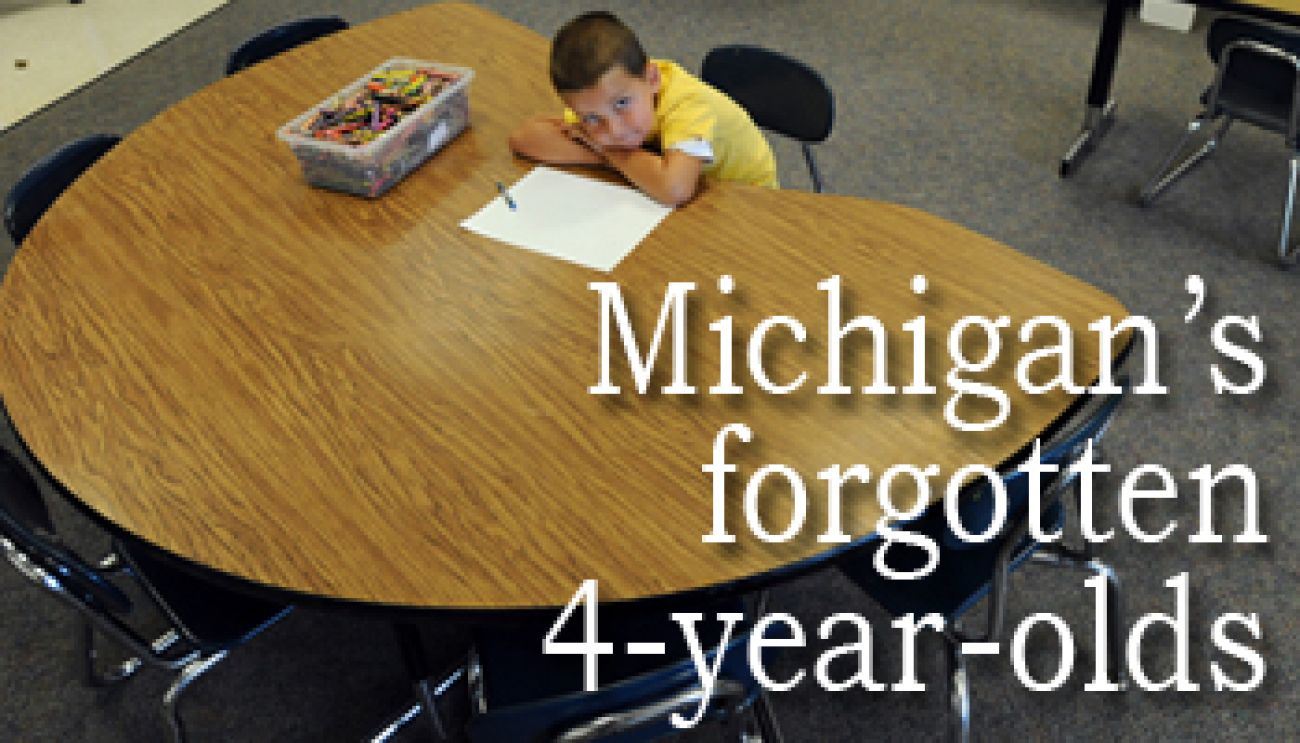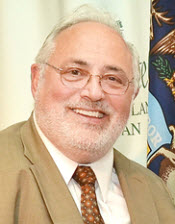State adopts ‘nation’s largest’ expansion of early childhood funding

Ten thousand additional Michigan 4-year-olds will be in classrooms next school year, after Republican and Democratic legislators Wednesday passed the largest expansion in early childhood education in the nation.
The $65 million expansion for the 2013-14 budget year is a major victory for business leaders, educators and children advocates, as well as Gov. Rick Snyder and legislative leaders who believed early childhood education offers a good return on investment. But the biggest winners will be Michigan’s low- and moderate-income children, who will now be able to enroll in a program proven to improve test scores and lower drop-out rates.
The victory comes a year to the day since the Children’s Leadership Council of Michigan unveiled a coalition of 100 business leaders endorsing a vast expansion of the state’s Great Start Readiness Program that provides pre-K to 4-year-olds from low- and moderate-income families.
That announcement was made at the Detroit Regional Chamber of Commerce’s Mackinac Policy Conference last year. In September 2012, Bridge Magazine’s report, “Michigan’s forgotten 4-year-olds,” revealed that almost 30,000 preschoolers who qualified for free public pre-K education were locked out of classrooms because of insufficient funds, logistical hurdles and poor coordination of services. That report recently won a national award from the Education Writers Association.
Bridge’s coverage helped rally support for GSRP among legislative leaders such as Sen. Roger Kahn, chairman of the Senate Appropriations Committee, House Speaker Jase Bolger, R-Marshall, and Senate Majority Leader Randy Richardville, R-Monroe. Snyder endorsed the expansion in his State of the State address in January.
The expansion, passed by the House Tuesday and the Senate Wednesday, provides $40 million to enroll more children immediately, and another $25 million as the program gears up. Language in the bill calls for an additional $65 million expansion next year, though that additional money would have to be approved by the Legislature in 2014.
The expansion is designed to largely end the phenomenon of eligible but unenrolled 4-year-olds over the next two years.
The $65 million increase – a 60-percent bump over current funding – also is the biggest in the nation this year. “Michigan’s increase is way bigger” than those being considered in other states, said Margie Wallen, director of national policy at the Ounce of Prevention Fund in Chicago. “You will be the absolute leader in this year’s increase in investment and increasing quality."
MORE COVERAGE: Michigan moves into national forefront of preschool funding
Michigan is once again being viewed as a leader in early childhood education. “I was at a(n education) conference in Washington recently, and people were marveling at what’s happening in Michigan,” said Washtenaw Intermediate School District Superintendent Scott Menzel. “They’re encouraged by the political dynamics.”
Those political dynamics – bipartisan support for expanded public-funded education – “gives me hope that there are more educational issues we can come together on,” said Livingston Educational Service Agency Superintendent Dave Campbell. “Both parties looked at the research and both parties agreed that this is a good investment. Money is tight, and we’re still expanding in an area that has the most impact.”
Key to the expansion for Menzel was an increase in the per-student allotment for next school year, from $3,400 to $3,625. Currently, some schools lose money with every GSRP student who walks in the door. “The per-slot increase is essential to high-quality programming,” Menzel explained.
“We’re really glad the Legislature has a made a budget decision rooted in evidence and geared to address the achievement gap,” said Mina Hong, senior policy associate for the advocacy group Michigan’s Children. “We know GSRP reduces the readiness gap in kindergarten and improves third-grade reading proficiency. And GSRP gets more people to graduation.”
In more than 600 community conversations about education reform held around the state by The Center for Michigan, residents listed expanded, high-quality pre-K as one of their highest priorities.
“Many people said the way to move the needle in our schools was through early childhood education,” said Phil Power, founder and chairman of The Center for Michigan. “The Center’s method is to nourish public attitudes and amplify them in the halls of power. And damned if it doesn’t work.”
Senior Writer Ron French joined Bridge in 2011 after having won more than 40 national and state journalism awards since he joined the Detroit News in 1995. French has a long track record of uncovering emerging issues and changing the public policy debate through his work. In 2006, he foretold the coming crisis in the auto industry in a special report detailing how worker health-care costs threatened to bankrupt General Motors.
Michigan Education Watch
Michigan Education Watch is made possible by generous financial support from:
Subscribe to Michigan Education Watch
See what new members are saying about why they donated to Bridge Michigan:
- “In order for this information to be accurate and unbiased it must be underwritten by its readers, not by special interests.” - Larry S.
- “Not many other media sources report on the topics Bridge does.” - Susan B.
- “Your journalism is outstanding and rare these days.” - Mark S.
If you want to ensure the future of nonpartisan, nonprofit Michigan journalism, please become a member today. You, too, will be asked why you donated and maybe we'll feature your quote next time!


 (Bridge illustration/A.J. Jones)
(Bridge illustration/A.J. Jones) Sen. Roger Kahn
Sen. Roger Kahn
